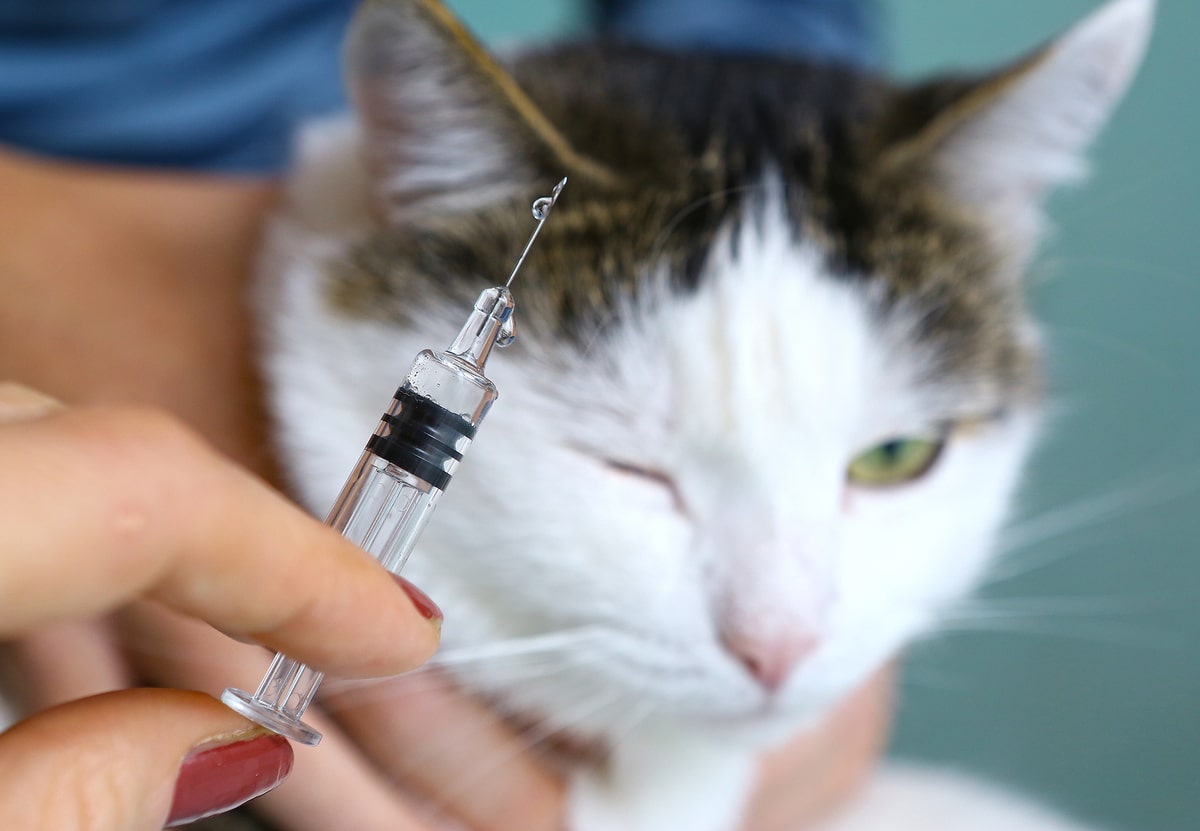How Often Do Cats Need Shots?
Cat owners often underestimate the care necessary to ensure their pets' health and happiness. One vital aspect of their well-being is the regular administration of vaccinations, including the distemper vaccine cats, which are crucial for protecting them from various diseases and maintaining their overall health.
Every cat is different, so each will need different vaccines based on their needs. While vaccines are not 100% foolproof, they significantly reduce the chances of disease transmission among cats, according to experts.
Make sure you have regular discussions with your veterinary provider about the vaccines your pet may need and ensure you remain on the proper schedule for shots.

What shots do kittens need?
It is crucial to start vaccinating kittens promptly since they are highly susceptible to various illnesses during this early stage of their life. From 6 weeks old, kittens should receive a series of shots over three to four months. However, kittens don't start right after birth, but they receive key antibodies from drinking their mother's milk.
How often do cats need shots?
As cats get older, the number of shots they need depends on several factors, including age, health, and lifestyle. Even if your cat lives strictly indoors, there are several vaccinations they should receive to be safe. In addition, most states, including Florida, require cats to be vaccinated against certain diseases.
What are the core vaccinations?
According to feline experts, there are four essential vaccinations that all cats should receive to protect their health and well-being. If you're wondering "what shots do cats need," these are the vaccinations recommended:
- Rabies: Required by law in nearly all states, and protects your cats (and you!) against the serious viral infection passed most often through bites.
- Calcivirus: A highly contagious and common virus that can cause upper respiratory infection in cats. This can lead to sneezing, conjunctivitis, gum sores and lameness.
- Feline herpesvirus: Another highly contagious virus spread by sharing litter trays, food bowls, and inhaling sneeze droplets. This is a significant source of upper respiratory infections.
- Panleukopenia (feline distemper): A potentially lethal virus that can cause fever, vomiting, and, in extreme cases, death. Kittens are especially vulnerable.
The final three vaccinations often come in a three-in-one shot called FVRCP or the distemper shot.
How often do cats need rabies shots?
The efficacy of modern vaccines has increased over the past few decades, so now most experts agree that a standard rabies shot can last up to three years. But check with your vet to find out their philosophy on rabies shots.
How many shots do cats need?
Aside from the core vaccinations mentioned above, several other shots may come into play for your pet, depending on its specific situation. Some of these include:
- Feline immunodeficiency virus (FIV) and Feline Leukemia (FeLV): Vaccines protect against infections often transmitted through close contact. They are generally recommended for cats who spend time outdoors. Feline Leukemia is not curable, so the priority is prevention.
- Bordatella: A bacteria that can cause upper respiratory infections. This commonly occurs if you take your cat to a kennel or groomer where other cats are present.
- Chlamydophila felis: An infection that causes severe conjunctivitis. Sometimes the vaccination is included in the distemper shot.
What vaccines do cats need yearly?
There is no set schedule for annual cat vaccines - it is up to the discretion of your veterinarian, who will monitor your pet's overall health and determine when follow-up shots are needed.
What are cat booster shots?
Your vet will help you determine if your cat needs booster shots to previously administered vaccines.
According to the American Association of Feline Practitioners (AAFP), low-risk cats (primarily indoor) who received a full vaccination schedule as a kitten can follow a cat shot schedule that involves being vaccinated every three years for core vaccines and per vet decision for non-core vaccines. If your cat spends most of its time outside or you have seen changes in your pet's health, the vet may perform a series of blood tests to measure antibodies.


